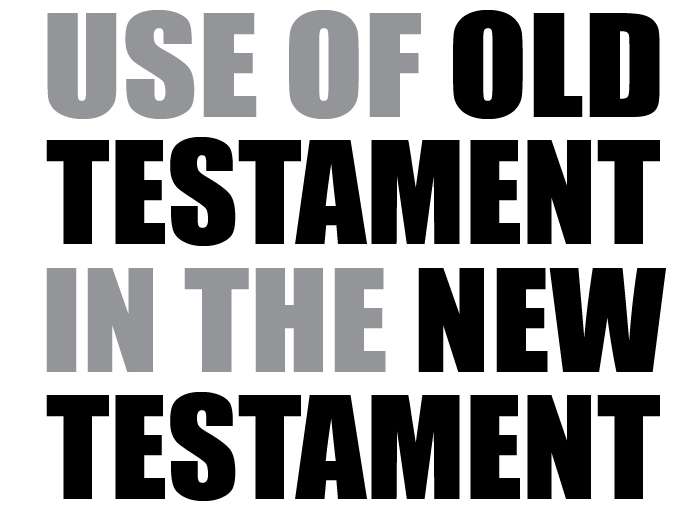

Thanksgiving in Psalms
Dr. Geevarughese Mathew
Gerhard Von Rad has given a beautiful introduction to the Book of Psalms in the Bible. He describes Psalms as response of the people of God in the context of various references of life. Israel has witnessed God's mighty acts in history, but they did not keep silent. Instead, they responded to God through Psalms. Psalms can be rightly understood as the response of the people of Yahweh towards God's mighty acts in history. Psalms are collections of prayers, poems and hymns that focus on the worshippers’ thoughts on God in praise and adoration. This long collection of 150 was divided into five sections : Book 1 (1-41), Book 2 (42-72), Book 3 (73-89), Book 4 (90-106) and Book 5 (107-150). Each section concludes with a doxology and they vary in preference of divine names. Book 1 has a clear preference for the divine name Yahweh (it occurs 272 times, while Elohim occurs only 15 times) , while in Book 2, the preference is reversed (Yahweh occurs 74 times, Elohim 207 times). Scholars differ on the criteria for organizing the Psalms in this manner. The most convincing theory is that it was divided into five sections as parallel to the Pentateuch, the first five books of the Old Testament. Scholars like Hermann Gunkel, Mowinckel, Weiser considers that the sitz-in-laben of Psalms is to be seen in the worship of Anceah Israel. Therefore Psalms can be better understood in the liturgical context of the life of Israel. There are songs of Thanksgiving , hymns of praise, Psalms of repentance and confession, Psalms that invoke evil upon ones enemies, messianic Psalms, individual and community laments in various occasions and songs sung by pilgrims as they travelled to Jerusalem to observe one of the great festivals of faith.
Psalms reflect various occasions and experiences of the people of Israel. For them Yahweh was their personal God. Yahweh, the God of Israel is never lost in metaphysical speculations. He is a person who thinks, knows, feels, loves and is capable of anger, and one who is interested in their life. Psalms reflect divine and human encounter. God is one who speaks to man and to whom man can speak.
Some of the Psalms are considered to e Pilgrim songs of Israel. Three times a year, every male was expected to go to Jerusalem to attend the great annual festivals such as the Passover, Pentecost, and the Feast of the Tabernacles. Ordinarily, the Father was accompanied by his wife and family. This was a time of great joy and rejoicing. He people came from various directions to participate in this joy and exciting celebrations. They sang songs of praise and thanksgiving. Psalms 120-134 are a collection of such Pilgrim songs.
There are some Psalms which were used in the context of worship in the Temple. The Temple was the center of their religious and national life. All kinds of experiences were brought before God in the Temple worship, the place of God's dwelling. In addition to this, there were special occasions where the individuals came to the Temple to confess their sins, to fulfill their special vows and to make special offerings of thanksgiving. There are also songs of personal devotions which reveal one’s personal encounter with God. The Psalmist recognizes the greatness of God, his mercy and goodness and rededicates himself before for spiritual renewal. Some Psalms are nationalistic while others are personal.
In all these Psalms, there is one element that is common in thanksgiving. Whether it is a lament or complaints or intercession, the Psalmist never forgets to give thanks to the God Almighty for his inestimable benefits and mercy. Thanksgiving (todah) is related to (yadah) linguistically and conceptually. Thanksgiving focuses on what God has done and praise focuses on who God is. The thanksgiving Psalm is a witness to the Lord's goodness and power. It praises the Lord's name in front of the congregation and leads the congregation to praise his name. Prasie, laments and thanks are three main features in the Psalms.
Martin Luther has rightly described the Psalms as “a little Bible, and the summary of the Old Testament”. In Psalms, we find the divine human encounter. The intimate relationship between God and human beings is the focus on the Psalms and the Old Testament. While the prophets brought God's message to the people, the Psalms brought human response before God. The relationship of God to the human is explained through various images in Psalms: shepherd, warrior, father, mother, kind, husband and so on. This is their intimate relationship that the Psalmist is expressing his feelings before God. It is important to perceive the motive behind the expression of thanksgiving in the Psalms.
1. Giving thanks to God for prayers being heard
The Psalmist is grateful to God for all his prayers being heard. For him, God is a loving father who listens to all his prayers. Ps. 16 begins with this affirmation of his certainty that God is the one who listens.
“I love the Lord, because he listens to my prayers. He listens to me every time I call him” (vs. 1-2)
Even in laments, an expression of confidence in God who listens is a common feature. In the midst of distress and sorrow, he is certain that God will listen to his cry.
“Keep away from me, you evil people! The Lord hears my weeping; he listens to my cry for help and will answer my prayer” (vs. 8-9)
Like the Psalmist, it is always good to remember that when we need to be grateful to God because he listens to our prayers.
2. Giving thanks to God for being delivered from evil and distress
The Psalmist gives thanks to God because he is being delivered from some distress or harmful situation, such as dangerous illness or oppression or persecution. The introduction to individual thanksgiving songs vividly describes this.
“I thank you, Lord, with all my heart; I sing praise to you before the Gods, when I am surrounded by troubles, you keep me safe. You oppose my angry enemies and save me by your power.” (vs. 1, 7)
The content of the Psalms recounts the specific reasons for gratitude towards God. There is a description of distress as in individual Psalms of lament, the cry to God for help and an affirmation that the deliverance was the work of God. Ps. 116 also provides a similar structure. It clearly describes the grievous situations which the Psalmist encountered. Danger of death, fear and anxiety enveloped him. But he was confident that God will keep him safe at the end. The Psalmist is overwhelmed with joy and gratitude to give thanks to the Lord and to bring wine offering in the assembly of worshippers in the Temple.
3. Giving thanks to God for his goodness and mercies.
To the Psalmist, the Lord is a God of goodness and mercies. “Give thanks to the Lord, because he is good; his love is eternal!” (Ps. 107:1)
In Ps. 136, we find that affirmation as a recurring phrase after narrating all his mighty acts in history. When the Psalmist thinks about God’s kindness and mighty deeds in the past, he is praising and giving thanks to him. The Psalmist remembers God's acts as a result of his mercy and goodness in the past. Therefore, he proclaims that God's love is eternal. It was manifested in creation, in his acts of deliverance from the bondage in Egypt, in his care and protection during the journey through the wilderness and in their occupation of the Promised Land. The Psalms reminds us to be grateful to God remembering how God led us in the past became of his goodness and mercy.
4. Giving thanks to God for his faithfulness
The Psalmist is not just thanking God because of the benefits that he receives in life. He is grateful to God because of his faithfulness. He gives thanks to God at all times.
“I will always thank the Lord; I will never stop praising him” (Ps. 34:1)
“I will proclaim your greatness my God and king; I will thank you forever and ever” (Ps. 145:1)
In Ps. 79, the Psalmist is asking God how long he will be angry to his people (v. 5) but he concludes with the affirmation that his people, the sheep of his flock will thank Him forever. Giving thanks to God is not an act when we are happy and joyful. Even in the midst of agony and distress we need to thank him trusting upon his faithfulness. Giving thanks to God is not just for the times of fasting. Thanksgiving is not a self centered act. It is an act that focuses upon God who is faithful to his people.
5. Giving thanks to God for his promises being fulfilled
To the Psalmist, God is one of the covenants (berith) and he is faithful in fulfilling His promises. Ps. 105 begin with the call to give thanks to God and proclaim his greatness to the nations.
“Give thanks to the Lord, proclaim his greatness, tell the nations what he has done.” (v. 1)
The Psalmist is confident that God is one who remembers his covenant and keeps their promises.
“He will keep his covenant forever, his promises to Jacob and the land of Canaan was his possession, The Psalm provides a vivid description of God who fulfilled all his promises to his covenant people through his mighty acts in history. His promises to the Patriarchs, his faithfulness in their deliverance from Egypt, his protection during their journey through the wilderness, his guidance to the promised land and all evidence of his faithfulness. The Psalmist is grateful not only for what God has done in the past but also for who God is.
6. Giving thanks to God as a living witness for others
The Psalmist is always aware that he is living in the midst of others, his enemies, friends and neighbors who do not acknowledge God's sovereignty. Therefore he proclaims God’s greatness and goodness and majesty in front of other people as a living witness to God.
“He taught me to sing a new song, a song of praise to our God. Many who see this will take warning and will put their trust in the Lord” (Ps. 40:3)
God’s people are called to sing praises, not just among themselves but also to tell this story among nations.
In Ps. 96, the Psalmist is asking us to sing a new song to the Lord reflects this theme “sing to the Lord”, three times. The first time he tells us to sing to the Lord a “new song”. It need not be a newly composed song. But it refers to a song that celebrates the mercies of God which are new every morning. The second exhortation is directed to “all the earth”. The third call is to sing to the Lord to declare his glory among the nations. The Psalmist exhortation to proclaim his mighty deeds to the nations is a call for witnessing this great God is just and righteous (v. 3). Ps. 67 is another Psalm with the same motive. The intention of the Psalmist is to make God's will and salvation be known to all the nations (v.3). Therefore, the praise and thanksgiving are not only an act of worship but also an act of witnessing God before the nations.
“The land has produced its harvest; God, our God has blessed us. God has blessed us; may all people ever adore and honor him.” (Vs. 6-7)
As mentioned earlier, Psalms may be seen as human response to God's wonderful deeds. God is presented with all His majesty and power. Our response is wonder, awe and fear. But more significantly, our God is a God who is involved in our lives. He cares and protects us. He is a great God but he is interested in human affairs. The Psalmist aware of God’s greatness and transcendence but at the same time certain that He is so near to us. He is s close to us and therefore “I will fear no evil; for you are with me.” (Ps. 23:4)
Psalmist is overwhelmed by gratitude and praise. He is confident of God’s presence throughout his life and in the life of the worshiping community. For the Psalmist, our life is to be filled with joy and thankfulness.




